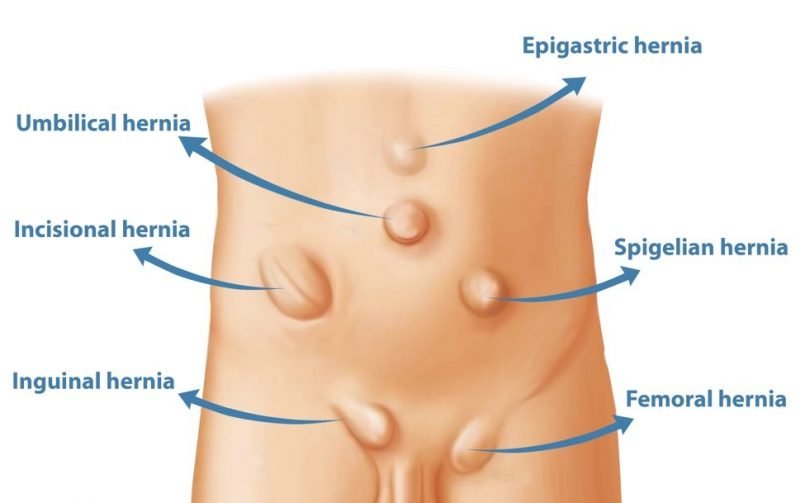A hernia is a common medical condition that occurs when an organ or tissue protrudes through a weak spot in the surrounding muscle or tissue. While hernias can develop in various areas of the body, such as the groin, abdomen, and diaphragm, they most commonly occur in the abdominal wall. Fortunately, there are steps you can take to prevent the development of a hernia. In this article, we will discuss hernia prevention and offer some tips to help you reduce your risk.
Maintain a healthy weight:
Being overweight or obese can increase your risk of developing a hernia, particularly in the abdominal area. Carrying excess weight puts more pressure on your abdominal muscles, which can cause them to weaken and lead to a hernia. Maintaining a healthy weight through diet and exercise can help reduce your risk.
Avoid heavy lifting:
Lifting heavy objects can put a strain on your abdominal muscles and increase your risk of developing a hernia. If you need to lift heavy objects, be sure to use proper lifting techniques. Bend at the knees, keep your back straight, and use your legs to lift the object, rather than your back.
Quit smoking:
Smoking can weaken your abdominal muscles and increase your risk of developing a hernia. Nicotine can also decrease blood flow to the muscles, making them more susceptible to injury. If you smoke, consider quitting to reduce your risk of developing a hernia.
Practice good posture:
Poor posture can put a strain on your abdominal muscles, leading to weakness and an increased risk of hernia development. Make a conscious effort to stand up straight, keep your shoulders back, and engage your core muscles throughout the day to improve your posture and reduce your risk of hernia development.
Eat a high-fiber diet:
Eating a diet rich in fiber can help prevent constipation, which can increase your risk of developing a hernia. Straining during bowel movements can put pressure on your abdominal muscles and lead to hernia development. Eating a diet high in fiber can help keep your digestive system regular and reduce your risk of hernia development.
Avoid repetitive activities:
Repetitive activities that involve bending, twisting, or straining can increase your risk of developing a hernia. If your job or hobbies require repetitive activities, take frequent breaks and practice proper body mechanics to reduce your risk.
Conclusion:
While hernias are a common medical condition, there are steps you can take to prevent their development. Maintaining a healthy weight, avoiding heavy lifting, quitting smoking, practicing good posture, eating a high-fiber diet, and avoiding repetitive activities can all help reduce your risk of hernia development. By taking these steps, you can protect your abdominal muscles and reduce your risk of developing a hernia. If you have any concerns about your risk of hernia development, consult with your doctor

